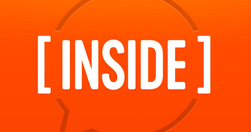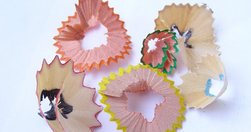Filter 1338 resources:
- media (468)
- news (369)
- disinformation (252)
- facebook (196)
- social media (173)
- journalism (152)
- curation (131)
- content strategy (95)
- community (94)
- comments (94)
- filter bubble (75)
- publicsphere (69)
- algorithm (60)
- native advertising (57)
- us2020 (56)
- ai (55)
- factchecking (55)
- eu (53)
- psychology (51)
- longform (47)
- trump (46)
- advertising (46)
- storytelling (39)
- data journalism (39)
- bloggingportal (36)
- twitter (34)
- politics (33)
- trust (33)
- troll (33)
- podcast (31)
- google (29)
- polarization (27)
- audiovisual (27)
- medium (26)
- content (26)
- augmented reality (26)
- instant articles (26)
- innovation (25)
- mobile (25)
- covid19 (25)
- propaganda (24)
- engagement (24)
- democracy (24)
- us (24)
- multilingualism (24)
- ocm (22)
- newsletter (22)
- bias (21)
- nytimes (20)
- bot (20)
- tool (20)
- science (20)
- video (20)
- identity (19)
- metrics (19)
- conspiracy (19)
- myhub (19)
- content marketing (18)
- data (18)
- explainer (17)
- newsroom (17)
- cognitive (17)
- productivity (17)
- censorship (17)
- brexit (17)
- bullshit (17)
- politicoeu (16)
- enewsletter (16)
- delegitimise (16)
- blogging (16)
- data visualisation (15)
- bbc (15)
- regulation (15)
- open web (15)
- fediverse (15)
- semantic (15)
- online architecture (14)
- promotion (14)
- platform (14)
- science journalism (14)
- amp (13)
- clickbait (13)
- communications (13)
- blog (13)
- design (13)
- cms (13)
- bloggingportal2 (13)
- privacy (12)
- groupthink (12)
- ea (11)
- web20 (11)
- blockchain (11)
- machine learning (11)
- cambridge analytica (10)
- virtual reality (10)
- media literacy (9)
- science communication (9)
- atprotocol (9)
- atomisation (9)
- llm (9)
- hoax (9)
- post-truth (9)
- business model (9)
- backfire effect (9)
- visualisation (9)
- domestic (9)
- qanon (9)
- russia (9)
- brussels bubble (8)
- bxlsbbl (8)
- usa (8)
- open source (8)
- blogpocalypse (8)
- crowdsourcing (8)
- vote (7)
- interactive (7)
- chatgpt (7)
- populism (7)
- marketing (7)
- web (7)
- ai4communities (7)
- circa (7)
- copyright (7)
- sponsored content (7)
- quartz (7)
- gtd (7)
- buzzfeed (7)
- authenticity (7)
- tribe (6)
- linkedin (6)
- moderation (6)
- ux (6)
- europe (6)
- app (6)
- information (6)
- monetisation (6)
- pay4content (6)
- seo (6)
- knowledge management (6)
- apple (6)
- euractiv (6)
- eurosceptics (6)
- suppress (6)
- web design (6)
- snapchat (6)
- 2ndbrain (6)
- fascism (6)
- headline (6)
- ec (6)
- bestof2015 (6)
- event (5)
- climate (5)
- moments (5)
- theme (5)
- audience research (5)
- pr (5)
- guardian (5)
- persuasion (5)
- jeff jarvis (5)
- bluesky (5)
- gender (5)
- nlp (5)
- framework (5)
- society (5)
- dni (5)
- analytics (5)
- vox (5)
- editorial (5)
- cory doctorow (5)
- personal (5)
- narratives (5)
- substack (5)
- machine translation (5)
- anti (5)
- instagram (4)
- collaboration (4)
- guide (4)
- creativity (4)
- yanss (4)
- futurism (4)
- free speech (4)
- confirmation bias (4)
- top3pods (4)
- viral (4)
- notification (4)
- education (4)
- meme (4)
- blm (4)
- wikipedia (4)
- ethics (4)
- strategy (4)
- zettelkasten (4)
- culture (4)
- bundle (4)
- antivaxxer (4)
- influence (4)
- chat (4)
- publishing (4)
- hate (4)
- solutions journalism (4)
- partisan (4)
- coral (4)
- credibility (4)
- lobby (4)
- tv (4)
- inoculation (4)
- fbpaper (4)
- surveillance (4)
- sceptic (4)
- corporate journalism (4)
- europa (4)
- stream (4)
- context (4)
- realtime (4)
- uk (4)
- startup (4)
- sublime (4)
- future (4)
- motivated (3)
- youtube (3)
- (3)
- faq (3)
- outrage (3)
- signal2noise (3)
- search (3)
- infowar (3)
- policy (3)
- collective intelligence (3)
- decentralised (3)
- euroblog (3)
- infopocalypse (3)
- aggrefilter (3)
- participation (3)
- personalisation (3)
- mobocracy (3)
- homepage (3)
- machine text (3)
- attentionweb (3)
- crowdfunding (3)
- misinform (3)
- visual (3)
- radio (3)
- debunk (3)
- eurosceptic (3)
- deep fake (3)
- english (3)
- semanticweb (3)
- gamification (3)
- echo chamber (3)
- livestream (3)
- gpt-x (3)
- wapo (3)
- slack (3)
- blogactiv (3)
- explanatory (3)
- adblock (3)
- coda (3)
- vine (3)
- rebelmouse (3)
- paper (3)
- cards (3)
- paywall (3)
- management (3)
- digital transformation (3)
- share (3)
- local (3)
- portal (2)
- humour (2)
- infographic (2)
- addiction (2)
- brand (2)
- truth (2)
- psychometrics (2)
- china (2)
- agile (2)
- inscrutable (2)
- computational propaganda (2)
- memory (2)
- sentiment analysis (2)
- interface (2)
- digital (2)
- mvp (2)
- opinion (2)
- optimisation (2)
- writing (2)
- egovernment (2)
- hr (2)
- reflectivity (2)
- dunning-kruger (2)
- circa2 (2)
- team (2)
- html5 (2)
- 360video (2)
- mastodon (2)
- automation (2)
- facebook live (2)
- storyful (2)
- philosophy (2)
- history (2)
- multimedia (2)
- disruption (2)
- hoaxy (2)
- library (2)
- trending (2)
- conversation (2)
- loyalty (2)
- magazine (2)
- impact (2)
- buzzbot (2)
- ft (2)
- counter speech (2)
- messaging (2)
- signaltonoise (2)
- syndication (2)
- spain (2)
- vice (2)
- training (2)
- nuzzle (2)
- river4 (2)
- rss (2)
- ios (2)
- wiki (2)
- image (2)
- outreach (2)
- digg (2)
- economics (2)
- open science (2)
- b2b4me (2)
- api (2)
- election (2)
- ep (2)
- technology (2)
- traffic (2)
- audio (2)
- responsive (2)
- photography (2)
- scraping (2)
- fivethirtyeight (2)
- mediafr (2)
- gdpr (2)
- expert (2)
- livefyre (2)
- taxonomy (2)
- postmodern (2)
- skills (2)
- civil rights (2)
- faceted search (2)
- gawker (2)
- basic (2)
- cookies (2)
- web2.0 (2)
- mybot (2)
- curatorbot (2)
- ltinnovate2016 (2)
- bookmark (2)
- posse (2)
- balance (2)
- pluralistic ignorance (2)
- roamresearch (2)
- research (2)
- lobbying (2)
- pink slime (2)
- activitypub (2)
- flicc (2)
- memex (2)
- arg (2)
- blogtour (2)
- tools (2)
- themes (2)
- euractiv-com (2)
- syndicated-translation (2)
- ai prompt (2)
- botshit (2)
- enshittification (2)
- sari azout (2)
- ai search (2)
- robert putnam (2)
- idpi (2)
- atprotocol lexicon (2)
- justice-home-affairs (1)
- independence (1)
- obama (1)
- holacracy (1)
- meaning (1)
- europcom (1)
- coach (1)
- list (1)
- listapp (1)
- negativity bias (1)
- keyword (1)
- empathy (1)
- comment (1)
- nft (1)
- commonplace (1)
- european (1)
- guidelines (1)
- documentum (1)
- slow news (1)
- fuego (1)
- notion (1)
- elon musk (1)
- knowledge graph (1)
- pkm (1)
- procrastination (1)
- 3p framework (1)
- slidecast (1)
- oatmeal (1)
- consultation (1)
- gmo (1)
- network theory (1)
- network (1)
- speech to text (1)
- transcript (1)
- bioethics (1)
- agora (1)
- serendipity (1)
- genetic (1)
- law (1)
- flancian (1)
- language (1)
- scaling synthesis (1)
- fear (1)
- australia (1)
- lofi (1)
- twitter migration (1)
- animation (1)
- cmv (1)
- conference (1)
- blendle (1)
- iot (1)
- autosummarise (1)
- remote (1)
- apathy (1)
- slacktivism (1)
- roi (1)
- perplexity.ai (1)
- nat eliason (1)
- adaptive content (1)
- digital garden (1)
- hive (1)
- trove (1)
- hbr (1)
- trends (1)
- ello (1)
- binggpt (1)
- mindfulness (1)
- wikileaks (1)
- shieldlaw (1)
- shortform (1)
- startupy (1)
- nsa (1)
- schema.org (1)
- google+ (1)
- paid (1)
- wisdom (1)
- yahoo (1)
- campaign (1)
- abtesting (1)
- project management (1)
- evolution (1)
- stochastic parrot (1)
- programmatic (1)
- happeningo (1)
- calendar (1)
- paradigm (1)
- anonymity (1)
- christopher manning (1)
- archive (1)
- emily m bender (1)
- ukraine (1)
- eeas (1)
- screencast (1)
- upshot (1)
- tabloid (1)
- reddit (1)
- chinese (1)
- scrollytelling (1)
- python (1)
- comics (1)
- bingchat (1)
- safety (1)
- right (1)
- expiration (1)
- governance (1)
- values (1)
- ombudsman (1)
- citizenship (1)
- publicsector (1)
- quit (1)
- snowden (1)
- douglas rushkoff (1)
- native (1)
- experiment (1)
- halo (1)
- newsana (1)
- newscred (1)
- muckread (1)
- pinterest (1)
- eurocrap (1)
- transparency (1)
- belgium (1)
- presentation (1)
- social (1)
- information architecture (1)
- letters2eu (1)
- illusory (1)
- free (1)
- vandenbrande (1)
- cultural exchange (1)
- lean canvas (1)
- employee engagement (1)
- alan blackwell (1)
- criti-hype (1)
- messenger (1)
- broadcast (1)
- co-creation (1)
- language technology (1)
- help (1)
- perception (1)
- debatehub (1)
- ep2014 (1)
- stanbol (1)
- apache (1)
- meps (1)
- prezi (1)
- tourism (1)
- scale (1)
- pilot (1)
- roaming (1)
- eesc (1)
- insurrection (1)
- google glass (1)
- colfdusion (1)
- web development (1)
- conform (1)
- green (1)
- blogosphere (1)
- disgustology (1)
- data void (1)
- hololens (1)
- joan westenberg (1)
- omission (1)
- tracking (1)
- firefox (1)
- honesty (1)
- notd (1)
- annotate (1)
- sill (1)
- npr (1)
- indieweb (1)
- bertelsmann (1)
- desirability (1)
- digital civility (1)
- interoperability (1)
- bookmarklet (1)
- post-alpha (1)
- alpha phase (1)
- saas (1)
- presseurop (1)
- neural link (1)
- data4policy (1)
- geofence (1)
- pro (1)
- eaststratcom (1)
- sociology (1)
- blackpr (1)
- power (1)
- report (1)
- yeats (1)
- newsguard (1)
- gander (1)
- threadapalooza (1)
- gatsby (1)
- geopolitics (1)
- graze (1)
- insurge (1)
- knowledge illusion (1)
- data portability (1)
- philippines (1)
- curiosity (1)
- euvsdisinfo (1)
- spambot (1)
- syllabus (1)
- wikinews (1)
- software (1)
- new public (1)
- ipr (1)
- pluriverse (1)
- ussr (1)
- intro (1)
- imposter syndrome (1)
- expertise (1)
- quiz (1)
- cancel culture (1)
- dissonance (1)
- define (1)
- critical theory (1)
- woke (1)
- wikitribune (1)
- risk (1)
- circuit-breaker (1)
- overfitting (1)
- cui bono (1)
- peace data (1)
- information laundering (1)
- knowledge panel (1)
- fakebox (1)
- vsop (1)
- metaphor (1)
- pubhub (1)
- plandemic (1)
- renee diresta (1)
- polbot (1)
- ginsburg (1)
- truthbuzz (1)
- section230 (1)
- po.et (1)
- participatory culture (1)
- splinternet (1)
- fleeting (1)
- adversarial interoperability (1)
- planetary (1)
- scuttlebutt (1)
- trust net (1)
- early adopter (1)
- sensemaking (1)
- tiktok (1)
- public affairs (1)
- stack overflow (1)
- deplatform (1)
- discord (1)
- middleware (1)
- anonymous (1)
- floc (1)
- plato (1)
- metaverse (1)
- label (1)
- cookiepocalypse (1)
- flipboard (1)
- fedwiki (1)
- presidency (1)
- cozyweb (1)
- obsidian (1)
- willpower (1)
- compass news (1)
- framing (1)
- garden (1)
- social-media (1)
- publicsectorinformation (1)
- cluetrain (1)
- talia stroud (1)
- programmes (1)
- eli pariser (1)
- rebuttal (1)
- business (1)
- ngo (1)
- organisation (1)
- lisp (1)
- yellow-card (1)
- brave (1)
- liberalism (1)
- life-in-belgium (1)
- hungarian (1)
- accreditation (1)
- user (1)
- newsfeed (1)
- social marketing (1)
- freedom (1)
- playbook (1)
- parse.ly (1)
- citizen journalism (1)
- city (1)
- experience (1)
- liquid democracy (1)
- ethereum (1)
- fomo (1)
- authoritarianism (1)
- filter (1)
- freelancer (1)
- feed (1)
- mixed reality (1)
- vr (1)
- referrals (1)
- discourse (1)
- youth (1)
- infosociety (1)
- atlantic (1)
- slideshow (1)
- creativecommons (1)
- radicalisation (1)
- periscope (1)
- eparticipation (1)
- google analytics (1)
- bubble (1)
- altright (1)
- monitoring (1)
- apple news (1)
- upday (1)
- samsung (1)
- health (1)
- emergingus (1)
- conversational (1)
- webgl (1)
- 3d (1)
- line (1)
- unfinished (1)
- sponsor (1)
- the conversation (1)
- mooc (1)
- useful (1)
- centralised (1)
- membership (1)
- scandinavia (1)
- social capital (1)
- diig (1)
- slideshare (1)
- epsc (1)
- euro (1)
- text (1)
- italy (1)
- cx (1)
- snowfall (1)
- transmedia (1)
- isis (1)
- “illusory (1)
- partnership (1)
- atavist (1)
- longreads (1)
- mediumform (1)
- truth psychology (1)
- theoretical physics (1)
- einstein (1)
- terrorism (1)
- agriculture (1)
Relevant Overviews
Overview: Media
Relevant resources

Oh dear. "Andreessen mentions the “Chinese wall” that many media entities maintain between the business side and the editorial side. This approach is flawed, he says: “No other non-monopoly industry lets product creators off the hook on how the business works.” Many businesses, Andreessen argues, manage to balance incentives and conflicts and ca…
Original linkTonight I'll be toddling along to Grilling Kippers, a UKIP-focused anti-Eurosceptic campaign from deep within the Brussels Bubble.

Les Echos looks to be doing what I have long dreamed to do for the bloggingportal reboot - deploy semantic analysis to aid content discovery and to underpin a new wave of media and comment. But do we have to call it an 'aggrefilter'? "Les Echos launches its business news aggrefilter ... to gain critical working knowledge of the semantic web." …
“The best explainers are direct, concise and easy to understand. But investigative journalism is rarely any of those things, instead reflecting the messiness of real life… explanation is just the beginning, a gateway into the deep-dive…”

Damn, some of these ideas I implemented 12 years ago for the EC's thematic architecture. Nice to see them in a different context: First, the problem with current news journalism: "The column inches devoted to the new are column inches not given to the important... this stress on novelty is a holdover from when the cost of making and moving paper …
A Storify on 8 possible business models for journalism from Marc Andreessen (Cofounder of Netscape, now VC at a16z). Highlights: (6): "We already see the rise of new kinds of aggregators in the wake of the great unbundling of newspapers & magazines. Signal-to-Noise: "quality can easily coexist with crap. All can thrive in respective markets.... …

Sobering reality check on new journalism ventures which: "...from a business perspective, hardly be worth commenting on, except for the fact that the people doing the commenting — other journalists — believe that perhaps, in a declining profession, this could be a new life. It's journalism-centricity to a particular myopic degree.. an extreme exa…

Great idea for explaining EU affairs or just wishful thinking? "A new game called Fantasy Geopolitics (think Fantasy Football meets Model United Nations) is radically changing the way high school students in Minnesota are interacting with the news." - How a High School Teacher Is 'Gamifying' World News

"All of these things are using human powered context to organize and curate content in a better way. This is the rise of editors. It used to be bloggers and now it's organizing all of the activity with proper editors and direction... "
One for for the Bloggingportal reboot toolbox: "Newspaper is an amazing python library for extracting & curating articles ... delivers Instapaper style article extraction.” - Newspaper: Article scraping & curation — newspaper 0.0.2 documentation

Seems Zuck's taken Filter Bubble criticisms to heart, combining human & machine curation (now where have I heard that before?) to create what Techcrunch calls “content serendipity” (wish I'd coined that one): "Each Section combines stories chosen by Facebook’s human editors and surfaced by the Paper algorithm [from] a publication, blogger, publi…
FalseFacebook Paper: the video. Click the #fbpaper tag for some thoughts.

"You also can't add any site you want, as with a traditional RSS reader. Instead, Facebook has hired a team of content curators to pick stories for you in one of a dozen or so categories ranging from basic news to cute animals." - With Paper, Facebook just blew its own iPhone app out of the water | The Verge
Nice NYTimes tour of the current news startup wave: Key point: "quality, customized advertising on sites with good editorial content was actually a solid business with growing margins... Business Insider has had nine consecutive quarters where the revenue per page was rising.... “There are fundamental secular trends — ad growth, mobile growth, pa…

Looking forward to geeking out: Info architecture: Guessing some serious cardsorting went into this off the cuff remark: "the new FiveThirtyEight will provide coverage of five major subjects: politics, economics, sports, science, and lifestyle. By design, almost any topic in the news can potentially fit into one or more of these categories. " A…

Interesting points emerging from the first two articles I’ve seen about Jason Calacanis’ his new venture, Inside.com.

Medium on how magazine editing is morphing as technology transforms online longform: "Online, each story is at best its own magazine, sent out to find its own temporary audience. One article may absorb people who subscribe, or would once have subscribed, to Foreign Affairs; another might absorb devotees of Wired or Men’s Health or Glamour. The au…
NYTimes.com on how legacy organisations failed to go digital, leaving field open to tech-first startups: "Vox is a digitally native business, a technology company that produces media, as opposed to a media company that uses technology. Everything at Vox, from the way it covers subjects, the journalists it hires and the content management systems …
Last Thursday I finally caught up with Eric Maurice of PressEurop, which recently had its plug pulled by the EC following their decision to cancel its renewal tender some weeks after publishing it.

"As we enter a new year we have crowdsourced a checklist of 10 vital skills for journalists to produce digital content in the most effective ways ... We hope that the mix of skills, techniques and qualities listed below would help journalists to stay ahead of the game in terms of digital innovation, be able to harness the latest tools and techniq…

Apparently, and hopefully, we're seeing: "the end of a print media era defined by high-brow broadsheets and low-brow tabloids. Today, the idea of what constitutes “respectable” media is in flux as the online heirs to the tabloid tradition produce more quality stories and traditional outlets like the New York Times even look to them for inspiratio…
You can go for months without a good post on the EU public sphere, and then a whole bunch come along at once.

"whole new publishing and technology system ... continually iterate on the site and take advantage of new technology trends ... instead of seeing major redesigns in the future, users will see more incremental changes" Key question: are the native ads clearly ads? - New York Times redesign points to future of online publishing - Jan. 8, 2014

Great longread. Some excerpts: 1) It's a serious problem: "these online offenses are enough to make a woman want to click away from Twitter, shut her laptop, and power down her phone. Sometimes, we do withdraw: Pew found that from 2000 to 2005, the percentage of Internet users who participate in online chats and discussion groups dropped from 28…

“Comments from readers are probably one of the thorniest problems for online publishers of all kinds… and the methods for dealing with them are all over the map... We spoke to online editors and community managers at 104 news organisations from 63 countries across the globe, plus a selection of experts from the corporate and academic worlds to id…
Interesting survey of HuffPo, Techcrunch & other experiences with changing commenting systems and policies. - HuffPost policy banishes trolls — and drives away some frequent commenters | Poynter.

An alternative to Popular Science's approach: "Climate change articles trigger some of the most heated discussions on Ars Technica... a scientific matter with political ramifications, it's also the focus of astroturfers (fake grassroots movements), trolls, and the willfully scientifically illiterate. At Ars, we take trolling very seriously... we…

"If you have been following European politics and media, online and offline, for the past 5-6 years, you cannot but notice the genesis of a European Public Sphere . This sphere may be more or less evolved depending on national media, but it clearly there, much more than it was before the last European elections and the before the start of the cris…
"we essentially write new content that we then throw away at the end of the day. Content shouldn’t die by design... topical contexualization... means guiding readers through large, convoluted news topics. ProPublica’s topic pages get us closer to contextualizing huge topics. For every major series that they cover over time, there’s a landing page…
How nice to see a positive answer to the perennial question: Where are the MEPs?
Loading more...